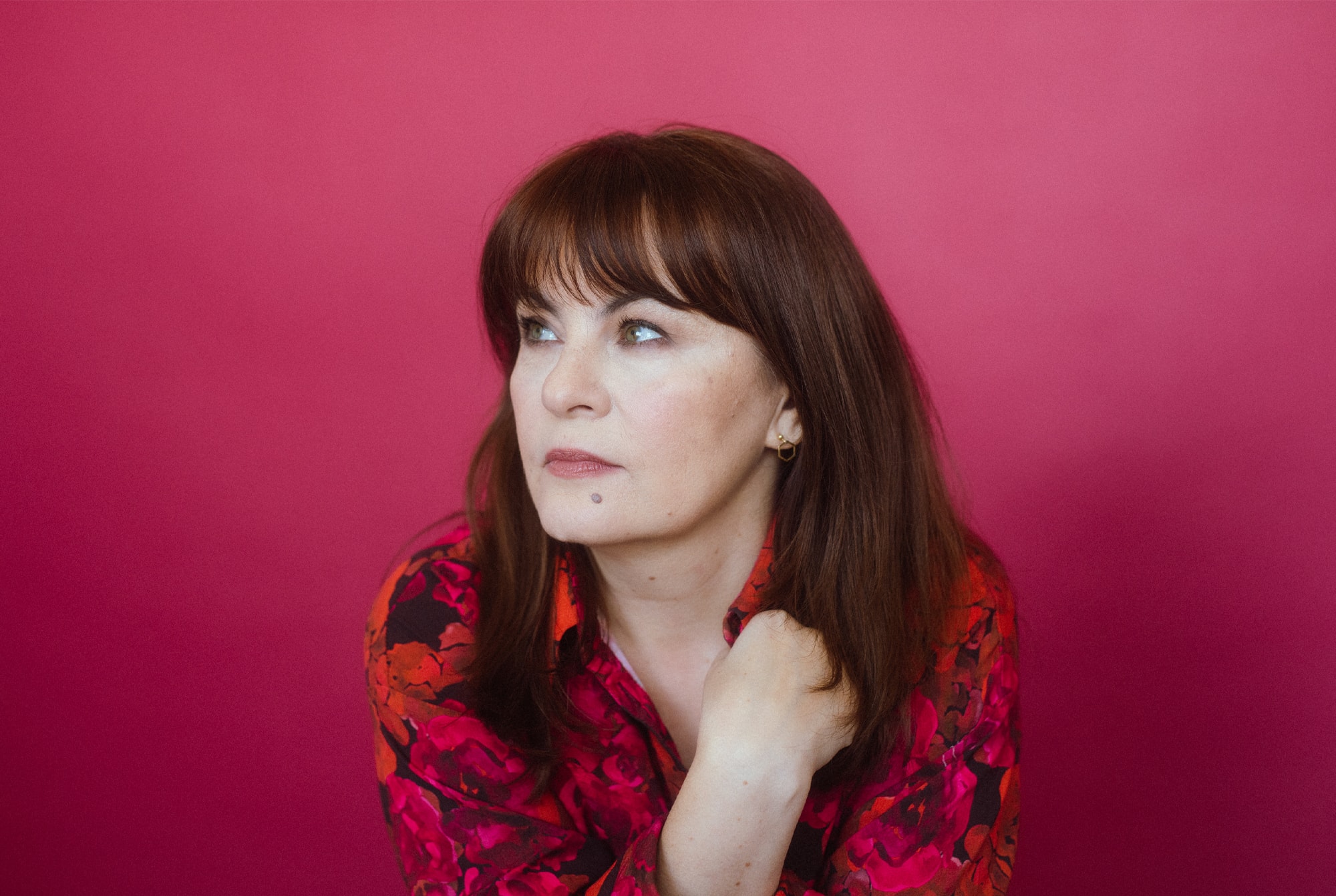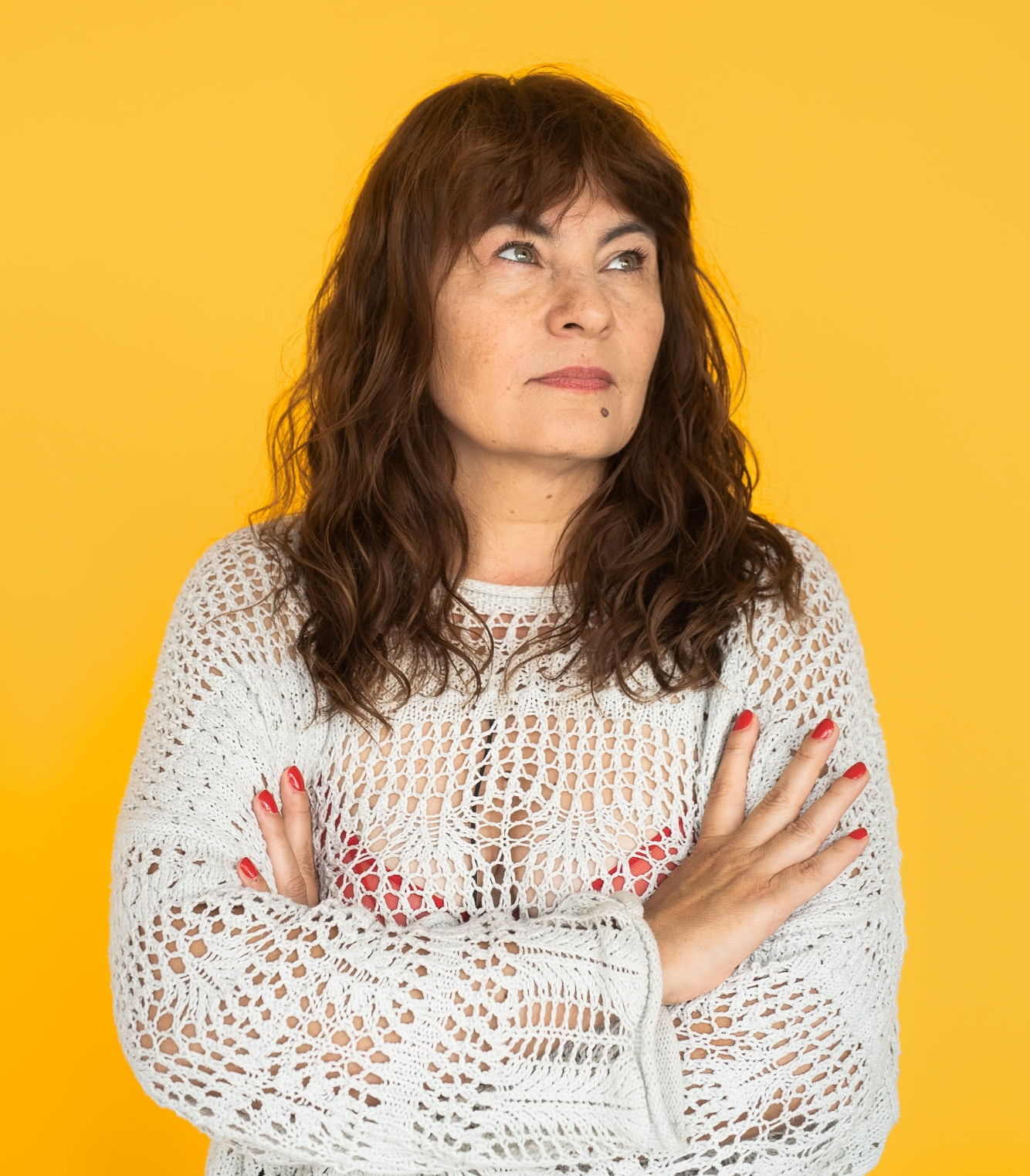
‘They want to leave women alone with their ‘problem,’ says Polish women’s rights defender, Justyna of the ruling ultra-conservative party in Poland.
Justyna, a mother of three, works in an increasingly hostile environment, one in which women’s sexual and reproductive rights (SRHR) are being completely dismantled. Poland has one of the most restrictive abortion laws in Europe, only permitting abortion when the life or health of the pregnant woman is endangered or in the case of rape or incest. On 22 October 2020, the Polish Court went further and ruled that abortions could no longer happen in cases of foetal illness or abnormality. The only way for women who need a safe abortion is to rely on NGOs and women’s rights defenders, like Justyna, who enable self-administrated abortions; a safe and easy way avoid being forced through a pregnancy.
”After my own abortion in 2006, I realised how hard it was for women and pregnant people to find proper information. It was just the beginning of Women on Web and nobody knew what abortion pills were. I found the process so technically easy that I didn’t want anybody to feel the huge fear that I initially felt.
An accidental activist
This is how Justyna says she became an accidental activist. After realising that women in Poland deserved more support and reliable information, she created Women on the Net, an off shoot of Women on Web, specifically geared towards Polish women. It provides access to reliable and unbiased counselling, as well as online information. In 2016, she co-founded the Abortion Dream Team, an activist group campaigning against abortion stigma and offering non-judgmental advice on how to access safe abortion. Justyna says they are contacted by women every day who want to access abortion care. As a survivor of gender-based domestic violence herself, one particular plea struck a chord with the activist.
In March 2020, Justyna was contacted by a woman in an abusive relationship. The woman had attempted to travel abroad to have an abortion but had been stopped by her partner. The pandemic meant postal services were unreliable and it wasn’t clear how long abortion pills ordered online would take to reach Poland. This situation meant Justyna agreed to provide the woman with pills she could take at home. However, the woman’s husband found the tablets and alerted the police. A warrant was issued to confiscate items from Justyna’s home in a bid to find the activist’s ‘stash’ of abortion pills. Justyna says they only found one box worth of Mifepristone and Misoprostol, the two pills included in the Essential Medicines List compiled by the World Health Organisation (WHO).
”When the police came to my house, they thought I had boxes of pills but it was one packet of pills. This is why they are not pushing the narrative that I’m a drug dealer. They want to make a case around the fact that medical abortion is a crime.
Under Polish law, although people who have abortions are not criminalised, those who directly help them are. The government and ultra-conservative right-wing groups want harsher punishments for abortion rights activists. Nobody knows this better than Justyna. Her case marks the first in Europe in which an activist is being prosecuted for helping someone access abortion care by providing abortion pills.
On 22 November 2021, the Prosecutor brought criminal charges against Justyna for assisting an abortion, even though the abortion never actually took place, and for possession of medicines without authorisation. She could serve up to three years in prison, if convicted. Justyna says this is not the first time someone has been prosecuted. Although in previous cases procurement of pills was facilitated by family members, partners or friends.
Judiciary overreach
‘In my case, there was no abortion. The police kept the pills and she couldn’t use them. There was just my willingness to help her. They will use this as an opportunity to threaten us and make an example of us. The verdict will be that I am guilty. I don’t know how harsh it will be, it’s hard to predict.’
The prosecutor says that while Justyna continues to help women, she is incriminating herself. The judge has even allowed Ordo Iuris, a fundamentalist Catholic organisation, to represent the rights of the foetus in court. A ludicrous move given there was no abortion and the foetus doesn’t have rights under Polish law. Justyna says they just want to be a ‘presence’ in the room for their supporters as part of their campaign to redefine the start of pregnancy to the moment of conception:
‘The constitution states we protect life from birth and not conception. There is no victim in this. It doesn’t say the foetus is a human life. The case was political from the start. The judge is appointed by the general prosecutor in the Ministry of Justice, so she’s a right-wing political judge and isn’t neutral. From the start the verdict was made.’
Despite this, Justyna is retrospective:
”We have had many women from the opposite side of the field on our phones but we know they have internalised stigma. I don’t blame anyone working against me because I know there could be a moment they might change their minds and find themselves in a situation where they need our help.
Justyna explains that the law on ‘aiding an abortion’ relates to surgical abortion and dates back to 1993. As a result, there is a fundamental misconception about the process: ‘The law is archaic. It was originally set up to punish doctors who undertook surgical abortion in their private practices outside of the healthcare system. But when pills became more available online, we knew we didn’t need doctors. They are safe and easy.’
However, even under circumstances where abortion is legal, there are huge barriers to access, including stigma and unwillingness of medical professionals to help; doctors are often too scared of the consequences. This disproportionately affects women from low-income and rural communities who can’t afford to travel abroad and don’t necessarily know where or how to access an abortion.
‘The cost of abortion is very high. When women have to pay between €500 and €1000 it’s a lot. It’s poorer women who suffer. Access should change and the costs should be supported by governments,’ Justyna says, especially with the influx of refugees into Poland.
The Russian invasion of Ukraine means Ukrainian women who want an abortion, many of whom are victims of rape, find it incredibly hard to access information. In response, Women on the Net is working on translating parts of the website into Ukrainian.
International solidarity

An unintended consequence of the government’s ongoing harassment of abortion rights campaigners and the international media attention is that women are increasingly aware of how and where to access abortion, more so than ever before. The women’s rights defender has received a lot of support from foreign media outlets and international agencies, including the European Parliament. The UN has also condemned the Polish government’s actions, as well as the legislative barriers to accessing abortion. With 66% of the Polish population supporting the liberalisation of abortion care, she has also received a lot of public backing. Justyna gets particularly emotional when she talks about the response from the Polish media:
‘‘I was dreading it. Especially when I had to share my story in front of the media. I was scared of their response, but it surprised me. They protected my personal life. This was really noticeable during the first trial as everything I said about my private life was recorded by the media, including the violence I endured, but they didn’t report on it at all.’
‘Empathy shouldn’t be punished’
Justyna is ready for whatever the outcome may be because she says this is bigger than just her story: ‘Empathy shouldn’t be punished, especially when someone is asking you for help. I feel there is only one chance to show that the law is extremely harmful. Even if I get a jail sentence, I am ready. I think this battle is bigger than just about my freedom. I know the moment it happens, we will appeal, and hopefully my sentence will be reduced. This isn’t about me, it’s about the whole movement. If we show we are afraid, then the whole the movement will be afraid.’
Her next hearing is on 11 January next year, depending on whether case witnesses attend. Until then, she is in limbo. However, despite this, when talking about the future for women in Poland, Justyna is hopeful. Elections are in May 2023 and the campaign has just begun.
”‘When I see polls indicating that nearly 70% of Polish people want to have abortion on demand after 12 weeks, I am more optimistic, we have never had majority support. I see a small glimmer of hope that there could be change in two or three years. It depends on what the results of the election are. If the PiS party has the majority again, there is no hope,’ she says wistfully. But Justyna won’t give up.
‘They want to silence us but we will continue supporting people no matter what. It affects the whole of Polish society. They will not ban me for this. The support I have gives me strength. It makes me feel braver. Every time I sit in court, I realise I may be sitting alone but I am not alone.’
Story by Dearbhla Crosse.
Photography thanks to the Abortion Dream Team.
